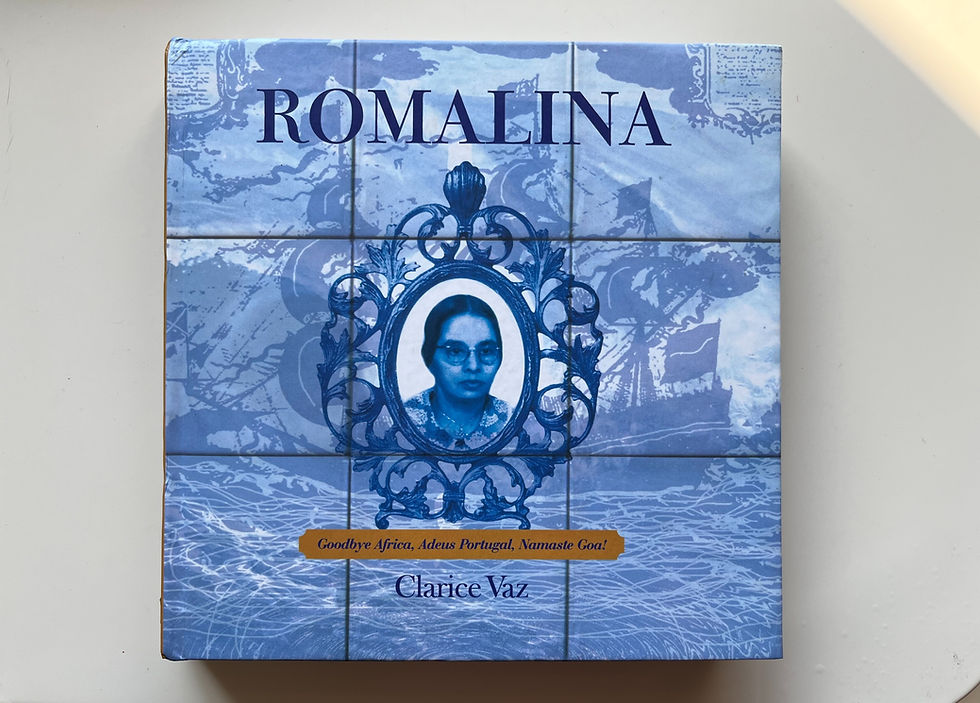Tsavo - The Money Eaters: Ghosts of Greed in Kenya by Braz Menezes - A Book Review
- Heta Pandit
- Aug 19, 2025
- 4 min read

In the Foreword, Stephen Luscombe tells us that “Braz Menezes is part of the Goan community who discovered such a fascinating niche within the British Empire of East Africa” and that opening places Braz and his book TSAVO (the fifth in the Matata Series) squarely and rightfully in this Book of the Month.
Some of the stories in the book suck you in; some sweep you off your seat and, some simply gather you up in a heap. TSAVO begins with a mother’s sudden passing and a rather pragmatic (all too mundane) making of the arrangements with each day that follows. Like in any other family, anywhere in the world, the task has fallen on the fragile, young shoulders of the oldest child in the family. This then, is just the preamble to the drama that unfolds for our protagonist Lando.
As some of you know, I’ve had my fair share of life in East Africa. We also had a grazing acquaintance with “Africa for Africans” when Dr Jane Goodall and some of my Indian friends kept getting that “funny, creeping feeling of being not-wanted”. This sentence in the book TSAVO made my hair stand on end. “After all, with over fifty years of working under the British, albeit in a subordinate role, they could not conceive how the Africans might treat them after Independence” just about sums up the feeling. That feeling of fear, trepidation and uncertainty.
While on the subject, I must mention that like in Goa where everyone is given a nickname by one’s fellow villagers, we too had our nicknames in Tanzania. Jane was Mama Mkubwa (Big/Important lady) and I was Mama Mdogo (Little lady) but what really teased our imagination was when my mother who was on a visit was nicknamed Mama Fundi (Mechanic lady). And all she did was flip the bonnet of our car open, tinkered with the engine and got it purring again! Readers will forgive me for slipping into reminiscing mode in this review. Some parts of the book brought on a full dose of nostalgia for me. So.
Back to TSAVO. The book is full of moments that encapsulate the life of a professional architect, starting a young family, being kind to a fellow human being, making and losing friends. For me, the saddest moment in the book is when Lando goes to the Club (designed by its founders to be a safe haven, a sanctuary) and finds that most of the familiar faces at the Club have simply disappeared without a trace. They have left without goodbyes and the ones that have still remained precariously perched on bar stools are whispering about leaving. Lando goes home, loath to leave the land that lives in his heart, to look for the solace he seeks.
When I was In Tanzania, the one regret we had was that we were not allowed to visit Kenya. The borders between the two countries were closed. Braz, after all these years, has opened those borders for me, revealing a time and place that is of significance, beauty and intrigue. The lack of safe housing in some neighbourhoods; the bubble-existence for some expatriates, is all too familiar. (We were told that it was quite acceptable to shoot and kill an intruder and toss him over the compound wall, no questions asked.)
There’s also the bombshell of truth that hits home in this one sentence in TSAVO. “Your little Goan tribe has no base.”
Braz says, about a fellow Goan, a journalist, “Cyprian has the combined characteristics of an Aardvark and an elephant… he sniffs out news and never forgets.” A line like this one could have only come from someone out of Africa. As also, “The smell of ‘nyama choma’ (roast meat over a jiko and raw ‘kuni’ [firewood] smoke), mixed with the stench from open drains stays with you forever.” There are some lines in the book that encapsulate the whole East African experience. This is just one of them.
Braz is an award-winning highly successful architect himself. TSAVO is no doubt autobiographical. Braz describes the “feast or famine” of the architectural business in Kenya in the 1970s and yet, architects of today will see that it was no different then from what it is today. While it was once believed that “plastic toys were all you needed to raise a child”, you begin to see that the struggles that Lando and his wife Eleanor go through on a daily basis are probably the same for young couples and families everywhere. In that sense, TSAVO is a reassuring book, for both young architects and young families the world over.
Braz is describing the 70s in faraway Kenya. Yet, “housing for the poor”, “tribal wars”, and “rapid urbanisation” are terms that are all too familiar in the year 2024. There is something surrealistic about that. Everything changes and yet nothing has changed.
Then Idi Amin happened in 1971. Not just to Uganda and Ugandans but to all of us, rippling through East Africa, the UK and India. The term “shuttlecock” was coined for people who found themselves stateless and were shunted from one border to another and back to the first. The Goan community that once served their British masters so “faithfully now found themselves forsaken by them.”
Braz’s protagonist Lando is criminally kind. He supports the gardener Stephen out of guilt or sympathy because Stephen has missed out on life, training or any chance of getting an opportunity to develop any kind of work ethic. The line, “rich people drink to show how rich they are, we poor drink to forget how poor we are.” sums up Stephen’s, Braz’s and our own feelings.





Comments